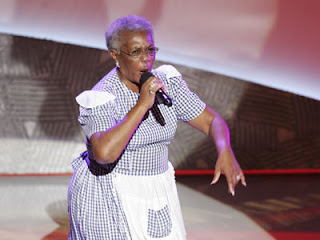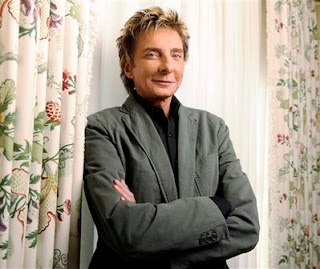 The world is facing many crises theses days, from the economic recession to the trouble in Gaza to oh my god did you hear that Lindsey Lohan broke up with her girlfriend?
The world is facing many crises theses days, from the economic recession to the trouble in Gaza to oh my god did you hear that Lindsey Lohan broke up with her girlfriend?
But none of those crises – at least as far as our local TV channels are concerned – is quite as monumental as the switch to digital TV, which, unless you’ve spent the past year in a coma or are currently dead, you already know happens on February 17.
The reason you know that is because, approximately every 30 seconds, a very loud person comes on the TV to tell you in a very loud voice that you need to purchase and install a digital converter box right now before the entire world collapses into a deep, dark void of penetrating nothingness for all time. Other consequences of failing to install a converter box prior to the 17th include, but aren’t limited to, oral herpes, certain death and, worst of all, not having TV. I also read somewhere that they’re going to start killing a baby bunny every hour, on the hour, until every last household in America has digital TV, although I haven’t been able to double-source it. Then again, I did read it on Wikipedia, so it’s probably not true anyway. Then again, I’m the one who posted it on Wikipedia, so it’s definitely not true (en.wikipedia.org/wiki/Digital_television).
It’s become increasingly clear to me that history will show the switch to digital TV to be the great challenge of our time. Sure, the war on terror is “important.” And global warming might “kill all life on planet Earth,” blah, blah, blah. Ooh, we’re so scared, global warming! Frankly, here in the age of digital TV, those issues have become peripheral at best.
AIDS and poverty already had their day in the sun. World peace is so 2008. We as a society are not going to be judged by how we handle some trivial issue of a bygone era. Our greatness will be determined by how we join together and rise up in 2009 to destroy all obstacles in our path – no matter how many human lives it costs – in order to ensure that every last man, woman and child on Earth has free and easy access to Dr. Phil.
It’s OK to be scared. It’s not every day that the world faces a crisis that makes the bubonic plague look like a case of the sniffles. And no one likes to see baby bunnies die, no matter how necessary it may be. But it’s imperative that we step up to the challenge. Do you think Neil Armstrong wasn’t afraid to take that first step on the moon? Do you think Ghandi wasn’t afraid when he resisted the British Empire? Do you think Aragorn wasn’t afraid to lead his dwindling army on a march against the Black Gate of Mordor in order to distract Sauron and his army of Uruk-hai so that Sam and Frodo could destroy the Ring of Power in the fires of Mount Doom?
Of course they were scared. What matters is that they pushed through the fear, and helped to make Earth, not to mention Middle Earth, a better place.
You might be wondering, “How can you compare the act of buying a converter box to the work of Ghandi, let alone Aragorn?”
Before you get all worked up, just take a moment to imagine a life without TV. I mean, think about it: No Sean Hannity. No NASCAR. No The Hills. No Deal Or No Deal. Yikes, right? A world without the wit and wisdom of Howie Mandel is no world for me.
In conclusion, Ghandi might have helped a nation gain its independence, but we are the ones who will ensure that, for generations to come, everyone still gets to watch every single episode of America’s Got Talent. Did you see the Rappin’ Granny? Oh, priceless!
Granted, there are a few drawbacks to digital TV, including the need to buy the converter box, and possibly a new antenna, plus a new TV. And the signal is all-or-nothing, so if there is any interference at all, all you get is a blue screen – but you can always just pretend that they zoomed in really, really close on a Smurf. That’s called making lemonade.
But clearly the negatives of digital TV are far outweighed by the catastrophic consequences if you don’t get it, which also include asphyxia, soreness and elephantiasis of the testicles. And yet, millions of Americans still haven’t gotten their converter boxes, so many that in early February – right after karma makes the Steelers lose the Super Bowl because their fans are dirty, awful, fat-faced traitors – congress might vote to push back the digital TV deadline to June 14.
America is playing with fire. It’s up to you and me to push this country forward, to fulfill the dreams of our forefathers, to fight and bleed and die under the proud flag of 24-hour Rock of Love marathons. Now, go get that converter box. If you don’t do it for yourself, for the love of God, do it for the bunnies.
 Barry Manilow is a lot of things, and “reserved” is not one of them. And the mawkish music legend is every bit as dynamic in conversation as he is on record, whether he’s talking about how he created the power ballad, hamming it up about his age or discussing the fact that he’s become a walking punch line.
Barry Manilow is a lot of things, and “reserved” is not one of them. And the mawkish music legend is every bit as dynamic in conversation as he is on record, whether he’s talking about how he created the power ballad, hamming it up about his age or discussing the fact that he’s become a walking punch line.
In the past four years, Manilow, now 65, has padded his already staggering career numbers with the release of a series of albums covering the “greatest hits” of the ’50s, ’60s, ’70s and ’80s (The Greatest Songs of The Eighties hit shelves in November) and a wildly successful Vegas show.
Team Last Call: Between this series of albums and the Vegas show, you’ve had what could be considered a real career renaissance over the last four years or so. What’s that been like for you?
Barry Manilow: I don’t consider it a renaissance. I never went away! I’ve just been doing my thing for all these years. Artists like myself, it’s like a roller-coaster. It just keeps going, and sometimes it’s very high and sometimes it’s low. But with me, the lows haven’t been too low, thank goodness. And the highs have been thrilling.
TLC: In the ’90s, your focus shifted to cover material, by and large, and I’ve seen you lament that fact in a few interviews. Can you talk about that?
BM: It’s all about Clive Davis and his wisdom about what records will sell. As a creator myself, I always want to create an original. But like he does with every artist on his label, he says, “It’s not always about being creative. It’s about what the public will like.” Since I’m an arranger and I’m a musician and producer, I can figure out how to make [cover material] work without feeling like I’m giving everything away. I see the fun in it. There does come a point every so often where I say, “Stop! I have to release an original thing. Stop! I have to do one for myself.”
TLC: I imagine it’s an interesting tug of war, with these albums debuting at number one, number two …
BM: If they all were released and they all just died on the vine, it would have been easy to just say, “Well, I gave it a try, and now I’ll go back to doing my original stuff and join the rest of the out-of-work composers and struggle along.” But [Clive’s] got this incredible talent of being able to zero in on what the public would like, so I am the grateful recipient of this man’s gift. Plus, my original stuff will never sell as well as what Clive gives me. But it will give me so much encouragement and so much inspiration that I can ride on that for the next couple of years, if he’s interested in coming up with some other cockamamie idea for a cover record.
TLC: You’re nominated for a Grammy for In the Swing of Christmas. What does that kind of thing mean to you at this point in your career?
BM: It’s a wonderful thing. They find me now and again and they give me a nod. It’s great. I didn’t expect that at all. What was interesting is that this Christmas album had nothing to do with Clive, had nothing to do with popularity, had nothing to do with charts. Isn’t that interesting? It had nothing to do with commercial success or having a committee listen to it and say, “Hey, we like this!”
TLC: People have this idea of Barry Manilow as a balladeer, like Johnny Mathis, but you’ve protested that in the past.
BM: Maybe some of the real big hits were ballads. But even my beautiful old ballads had a lot of passion, where Johnny, who I’m a great big fan of, sings much more gently. Keep in mind, I’ve always been on the border of rock and roll. As a matter of fact, people credit me for inventing the power ballad, which I think I might have done. “Mandy” was the first power ballad. They keep copying that style, with the piano and [how] the song builds and the key changes and the ending. They still do it. So therefore, I don’t know why people think all I do is sit at a piano and sing love songs. Boy, that’s about the last thing I do.
TLC: It’s been about 35 years since “Mandy” …
BM: Boy, am I an old fart! Holy mackerel! Thanks for reminding me.
TLC: Sorry about that. So, when you were that kid, being transformed into a pop superstar, are you thinking at that point, “I might have a career in 2009”?
BM: Oh, never. Never. But I’ll tell you what I did think: I knew I would land on my feet. I never thought I’d have this kind of career. But even when it began, it didn’t matter to me, and hey, it still doesn’t. I know that it sounds ungrateful, and I don’t mean it to sound ungrateful, but this career, the money, the huge success, doesn’t really matter. What matters is that I get the opportunity to still do it, and for that I am grateful, so grateful to the public and to the record companies and to Clive. But I don’t do it for anything but [the fact that] I can’t not do it. If I hadn’t been successful, I probably would have been really unhappy – but I wouldn’t have stopped.
TLC: You’re bringing the Ultimate Manilow show to Reading. Do you ever sort of impress yourself with the amount of hits you pack into the set?
BM: Impress myself? [laughs] Yeah, sometimes it’s overwhelming. It is. That I can fill up 90 minutes with music that everybody knows – that’s pretty amazing.
TLC: So, you’re this hugely successful and beloved artist, and on the other hand, one of the most mocked. What do you make of that polarity?
BM: You know, the bigger you get, the more you get [ridiculed]. A lot of people like what I do, and a lot of people have trouble with it or they make fun of it. If that’s what happens when you become really, really popular, I’ll take it. They can make fun and I’ll laugh along. People making fun of me? Everybody gets it, but usually everybody gets it for about two years. I’ve [been talked about] for about 30 years, so I’m a very happy guy. People can say whatever they want.
TLC: What else is there for Barry Manilow to achieve?
BM: There’s always something in the pipeline for me. I’ve got five more ideas that I’m developing right now. There’s always five more. And I don’t even care whether they’re successful. I just love that I come up with great ideas that thrill me. That thrill me! And I don’t care whether they stick to the wall. If some of them don’t, it doesn’t matter. I’ve just got millions of ideas. I’ll be on my deathbed, and I’ll be yelling, “Wait a minute! I’ve got one more!”

On record, Murder By Death singer Adam Turla sounds downright menacing, his deep baritone resonating with a Mark Lanegan-meets-Glenn Danzig growl of apocalyptic foreboding. Over swinging, shuffling, post-punk Americana, he flings phrases about infidelity, plunder, whoring, destruction, murder, gods, demons and utter desolation with a detached snarl, mercilessly scraping the bottom of the barrel for the starkest stories and bloodiest plot twists imagination allows.
But on the phone, he sounds really menacing. On a mid-January morning, he fumbles with the receiver and, after some under-the-breath grumbling, growls a curt “hello.” Irritation. Frustration. Were I a character in one of his dark, sprawling concept albums, he’d probably have one of my legs gnawed off by some foamy-mouthed hound of hell.
Fortunately, a few minutes and one funny story about a drinking game called Wizard Staff later, Turla is in a decidedly better mood.
“I’m generally a pretty happy person,” he insists. “I’m doing our band’s taxes right now, though, so when you called me I was wallowing in a sea of misery. I’ve been doing it for 30 hours. It’s killing me.”
Turla’s doing some last-minute office work before he and the rest of Murder By Death hit the road for a February tour that will feature, for the first time, the band playing the entirety of its newest album, Red of Tooth and Claw, and its 2003 storyline sequel, Who Will Survive, And What Will Be Left Of Them?, in sequence, stringing together an epic adventure that involves burning towns, stabbings, adultery, divine interventions, lots of vomit, lots of piss, lots of whiskey and the shooting of the devil in a Mexican town. If Cormac McCarthy ever decided to write a Broadway musical, this might be the score.
Red of Tooth and Claw is far from an obvious prequel. In fact, many of the band’s (sometimes overzealous) fans are still not aware of it, which is something Turla intended.
“Who Will Survive … had a real cult thing going on – there were all sorts of stage productions and ballets, there’s a doctoral thesis written about it that someone sent me, just all sorts of weird, obsessive versions of it,” Turla laughs. “So when this album came out, I didn’t want to just pander by saying it was [a prequel] to get people to go out and buy it.”
Musically, Red of Tooth is a dark and sinister splattering of Americana ornamented with Sarah Balliet’s ominous, droning cello and careening rockabilly beats that throw the songs up on two wheels. With the exception of the borderline-optimistic closing track, “Spring Break 1899,” which Turla claims actually comes closest to his personal worldview, it’s a bleak and heavy listen. And even the last track isn’t exactly what you’d call happy.
“’Spring Break 1899’ is a really happy, ’50s-sounding, dreamy ballad, but the lyrics are about pissing and shitting yourself because you’re drunk and worthless,” Turla chuckles. “Happiness is not interesting.”
Turla may not use it as song fodder, but Murder By Death does have plenty to be cheery about, from its mountain of critical acclaim to the tours it’s landed alongside likeminded bands such as Against Me! and Lucero, as well as Turla’s longtime idols, The Pogues. But why dwell on the bright spots when there’s misery to be had?
“There have been years when we have zero money and eat beans for a month,” Turla laments. “Then again, … I think that making good material comes out of desperation, of necessity. So in that way, I appreciate being in this line of career and not ever having it be peaches and cream.”
*Reprinted from Fly Magazine
